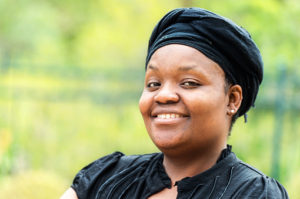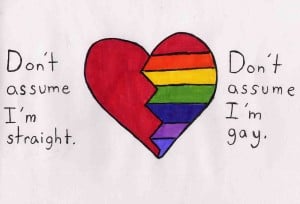Originally published on The Body Is Not an Apology and republished with their permission.
1. Remember That Your Existence Is Valid
When you’re constantly the subject of laws, amendments, and media speculation, it’s easy to forget that you’re more than just a number.
Your existence is valid, regardless of how you crossed the border, where you’re from, and where you’re today. Human beings cannot be “illegal,” especially in a country whose laws are built on the enslavement of Black people and the murder of Native people.
When the government talks about laws upon our bodies, we have to remember that no matter how much they tell us that our existence is “illegal,” they’re wrong.
We’ve traveled so much and fought so many obstacles, our existence is not only valid, it’s the powerful product of our journey.
2. Take Time to Take Care of Your Needs
Sometimes this is the hardest thing to do, as everyone faces undocumentation in different ways, and through different lenses.
Take the time to rest and eat, as well as be around others you can talk to.
If you have legal needs or appointments, take the time to plan things out. It’s okay to sleep in, and it’s okay to not be able to make it to every rally or meeting – but having someone to help you make it to those events is also great.
It’s okay to ask for help, and it’s okay to get help in your own way as well.
I recently witnessed someone trying to help a person who had recently faced deportation proceedings by offering them English classes.
After a conversation between my friend and this person, we quickly realized that what this person really needed was many different forms of aid (financial being the most immediate one), but had settled for the form of aid being offered, in this circumstance: English lessons.
As migrants, we have been taught that in order to have our needs met, we must assimilate and work through the system. But this is not true.
We are capable of many things, and deserve to have our needs met, whether the system works or not. Being able to spend time with our families, and have peace of mind is important, and taking the time to meet those needs is our human right.
It’s also important that we tell those around us what those needs are, and that we honor when we may not want what is offered to us at times.
I don’t need English lessons, or a citizenship class, or to meet with local lawmakers.
What I need is others to honor my journey and my existence and to fight alongside me for a world without borders.
3. Turn Off the TV and All Electronics
I love social media, and staying plugged in is usually really easy for me.
Because of this, I am subject to articles about my legal status every single day. This can get really exhausting, as articles about immigration can range between the good, the bad, and the utterly ridiculous.
This past election year has been especially exhausting. Forget the media: My identity has become an invitation for avalanches of questions regarding my wellbeing, as well as my “emergency plan” in regards to he-who-must-not-be-named becoming president.
Remember to take a break from social media, television, and, honestly, all electronics.
Not only is this good for your physical health, as big shiny screens have been tied to headaches and sleeping problems, but it will also help with your mental health as well.
Staying tuned in – even if you’re waiting for the latest election poll – is exhausting.
There is a beautiful physical world outside of our computer screens. I know it’s hard to put our phones down, as you never know when the next big news will come out and change everything, but it’s important for us to take care of our bodies so we we can be ready, no matter what happens.
4. Be Gentle with Yourself
As someone who has made up her mind about not pursuing citizenship, I often find myself questioning not just this choice, but all choices in my life.
Be gentle with yourself – because only you know the reason of your journey. Only you can decide where you’re going and how you’ll get there.
This immigration system has tried to intimidate us into believing that we have no choices left, that we must accept whatever fate a judge decides for us.
But we still have control over our everyday decisions, and we still have our dignity. We still have our strength.
Allow yourself to breathe and make hard choices, as well as postpone the easy ones. Sometimes time can feel so heavy and so uncertain. By being hard on ourselves, we are only traumatizing our bodies more and more.
Remember that you made the right choice by choosing to live.
Though many will tell you that you could’ve done it differently, remember that your migration to this country meant choosing to survive, no matter what.
Your body has survived the trauma of borders and the bureaucracy of colonization. You’re a living breathing testament to your dreams.
5. Connect with Your Homeland in Your Own Way
I have very few memories of Peru.
I remember my grandmother and how warm I would feel in her arms. I remember how safe and protected I felt with her, smelling her wet apron, and feeling her soft belly.
I remember my grandfather, who would speak to me in Quechua, though he knew I couldn’t understand but a word of it. I remember my grandmother’s garden, the noises of the city, and the black sand from the beach.
With only a handful of memories to remind myself of my homeland, I often questioned my own ability to connect with my roots, as well as my own identity as an Indigenous person.
I grew up hearing about Peru through documentaries, missionaries, and local Peruvian restaurants. It wasn’t until I moved out of my family’s house that I was able to explore my culture outside of these settings,.
But even then, I couldn’t help but feel like a fraud. How could I reconnect with something I had never had in the first place?
Colonization and assimilation are both very hard subjects on our bodies. As migrants, we’re not from here, and as undocumented migrants, we’re told that we don’t belong here, either.
In order to survive, we’re often forced to adapt to a country whose culture consists of appropriation and theft, as well as an overwhelming amount of artificial media.
Decolonizing our bodies is more than just a ten-step program.
It’s a daily practice of reconnecting and challenging the way our lives have been whitewashed, challenging the ways our bodies have been educated to assimilate into a system that profits from our struggle.
Reconnection can look like many different things, and can happen in many in a lot of different ways. It’s important for us to honor the ways that we reclaim our narratives, our roots, and our cultures.
6. Remind Yourself That You Are Magical
You are a magical human being.
Your body has defied laws and lines on papers and maps. You crossed these lines and now find yourself in a strange place that you have somehow built a home out of.
In order to make this home real, you’ve had to find a way to live, a way to connect, and a way to survive.
Many of us did this without speaking the local language. All of us did this in fear. Yet, through these obstacles you have survived. You’re here, living, and breathing, and still traveling in many ways.
You’re not from here. But you’re not from there either – not anymore.
Instead, you’re from somewhere else.
Your body belongs only to you and the culture you’ve created from living in between worlds. You’re a survivor. You’re a traveler.
You’ve gone through so much in order to get to where you are today, and no matter what happens tomorrow, you’ll always have today.
And you’ll always have your power.
[do_widget id=’text-101′]
Search our 3000+ articles!
Read our articles about:
Our online racial justice training
Used by hundreds of universities, non-profits, and businesses.
Click to learn more





















